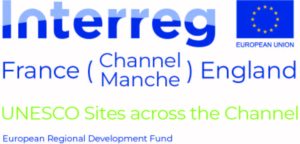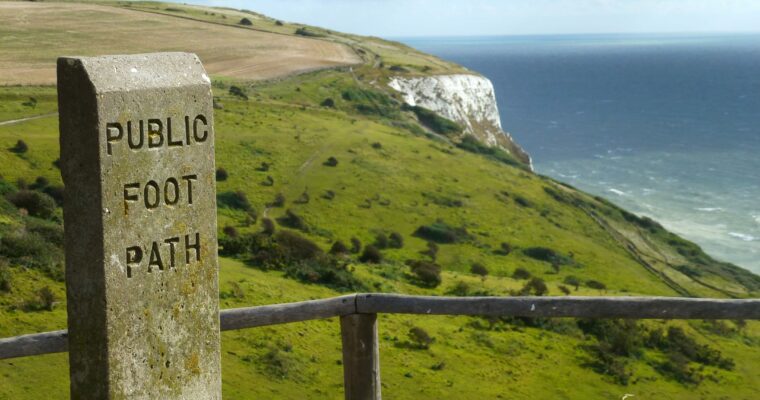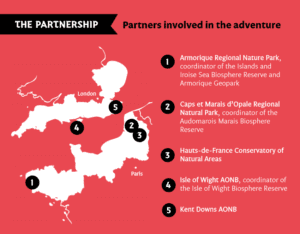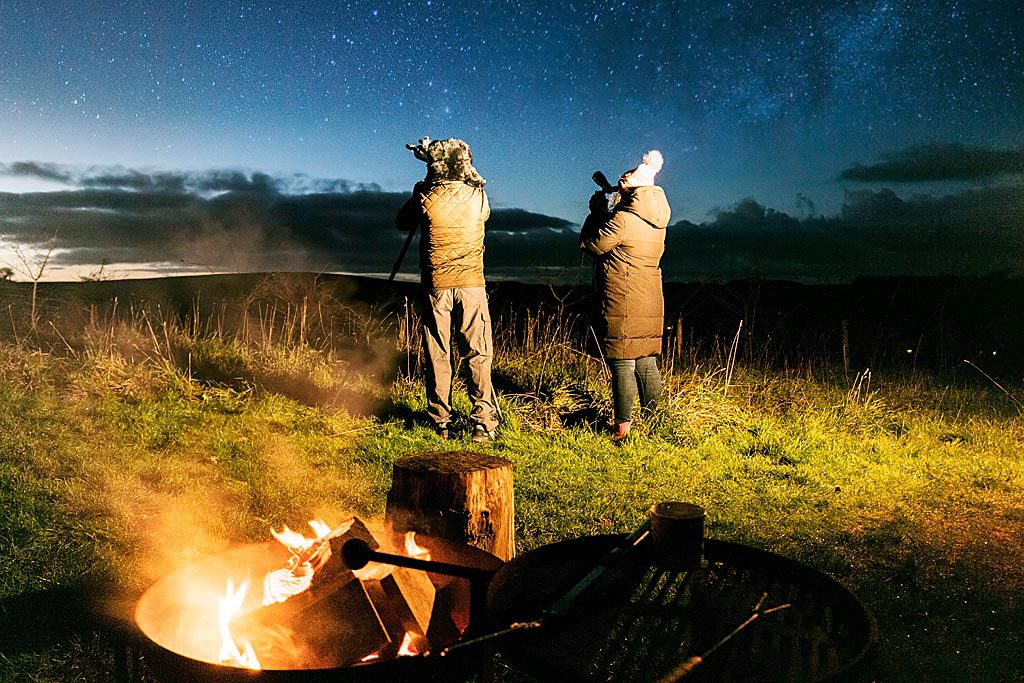A new model of sustainable tourism
We are thrilled to announce a new project to secure Cross-Channel UNESCO Global Geopark status for the Kent Downs National Landscape, working in partnership with our neighbouring protected landscape Parc Naturel Regional des Caps et Marais d’Opale (PNRCMO) and all the social, economic and environmental benefits this would bring.
The proposed Geopark will comprise both terrestrial areas and the marine area connecting the two protected landscapes, recognising and celebrating the geological connection between us. The Geopark is centred around the coastal and inland Chalk which is exemplified by the white cliffs of both coastlines, our chalk hills and the Channel Tunnel running through the Chalk-marl. This new proposed Cross-Border UNESCO Global Geopark would be united by the Chalk and Channel.
This marks an important development in our UNESCO Sites Across the Channel (USAC) project which runs from 2021-2023 and is funded by the EU Interreg Channel programme of the European Regional Development Fund.
The project is an exciting opportunity to work with partners and communities across Kent to secure a globally-recognised UNESCO designation for the National Landscape, including Kent’s Heritage Coast from Dover to Folkestone. The project will also deliver new sustainable tourism initiatives, as well as a Landscape Festival in 2022. Ultimately, UNESCO Sites Across the Channel seeks to celebrate and protect our natural and cultural assets whilst contributing to the sustainable development of the local economy.
What is a UNESCO Global Geopark?

UNESCO Global Geoparks are single, unified geographical areas where sites and landscapes of international geological significance are managed with a holistic concept of protection, education and sustainable development. Ours will be one of the few International Geoparks.
All geoparks are areas of exceptional geological significance, but what makes them special is that they are community-led partnerships that promote an appreciation of natural and cultural heritage while supporting the sustainable economic development of the area, importantly through geological and eco-tourism.
Benefits for the Kent Downs

Cross-Channel UNESCO Global Geopark status
UNESCO status would be a huge boost to the international recognition of Kent as a destination for sustainable tourism. We plan to develop new sustainable tourism experiences for residents and visitors while carefully managing biodiversity and protecting the landscape.
Increased awareness of and pride in the value and importance of the geodiversity and natural and cultural heritage of Kent.
Create an enhanced professional understanding of the geodiversity in the AONB, which will contribute positively to the ongoing conservation work not just of the National Landscape team but also of partner organisations.
Support for tourism professionals to discover local heritage
A network of local Ambassadors who share sustainable tourism values and practices based around the amazing natural and cultural resources of the Kent Downs.
New sustainable tourism experiences for all
New sustainable tourism experiences for residents and visitors while carefully managing biodiversity and protecting the landscape. Experiences will be nature-based tourism and of benefit to local communities and economies, for example nature hikes, geocaching, artistic festivals, exhibitions, farm stays.
Who is involved?
 The Kent Downs National Landscape team is one of 5 project partners in France and England. The Armorique Regional Nature Park is the project leader working alongside the following partners:
The Kent Downs National Landscape team is one of 5 project partners in France and England. The Armorique Regional Nature Park is the project leader working alongside the following partners:
- Caps et Marais d’Opale Regional Nature Park
- Natural Area Conservatory of Hauts-de-France
- Isle of Wight National Landscape
- Kent Downs National Landscape
Local supporters and partners include:
- Visit Kent
- Creative Folkestone
- Folkestone Fringe
- Kent Wildlife Trust
- National Trust London and South East
- White Cliffs Countryside Partnership
UNESCO sites across the UK
There are 32 UNESCO World Heritage Sites in the UK including some of our most treasured landscapes and landmarks such as Canterbury Cathedral, Stonehenge and the Lake District.
There are three different types of UNESCO designation:
World Heritage Sites – these are sites with cultural and / or natural heritage of unique, outstanding value to humanity. Examples include Canterbury Cathedral and Stonehenge.
Global Geoparks – Geoparks are areas of outstanding geological heritage that promote a bottom-up model of sustainable development. Geoparks undertake geological conservation and use geology as the basis for celebrating all forms of heritage. Some of the UK’s Geoparks are located in the Black Country, the English Riviera, and the Shetland Islands.
Biosphere Reserves – as ‘learning places for sustainable development’, Biosphere Reserves seek solutions that combine the conservation of biodiversity with its sustainable use. The UK has 14 Biosphere Reserves, including Biosffer Dyfi in Wales, Brighton & Lewes Downs, and the Isle of Wight.
Project Resources
Full recording of the Closing Conference for sustainable tourism management at UNESCO sites across the Channel project
It traces the work carried out on the European Interreg project “UNESCO sites across the Channel” (USAC) between October 2020 and March 2023.
Citizen engagement
An overview from project partner Parc Naturel Regional d’Armorique on how they approached engaging with their the different audiences within the Geopark Amorique. These included local residents, businesses and schools and ranged from creating a network of Geopark Ambassadors and delivering events to share knowledge on local geology to creating rock observation kits to help teach school children how the rocks were formed.
Funding
Funding
The “UNESCO Sites Across the Channel” (USAC) project receives financial support from the European Interreg France (Channel) England Program:
Total budget : € 1,611, 239.99
Contribution of the European Union : € 1,111,755.57
The Interreg – France (Channel) England (FMA) Program
The European Interreg France (Channel) England Program was set up to promote the economic development of the south of the United Kingdom and the north-west of France by funding innovative projects of sustainable and economic interest. It focuses on a series of specific objectives, notably support for innovation, improving the attractiveness of the FMA zone and the development of low-carbon technologies.


